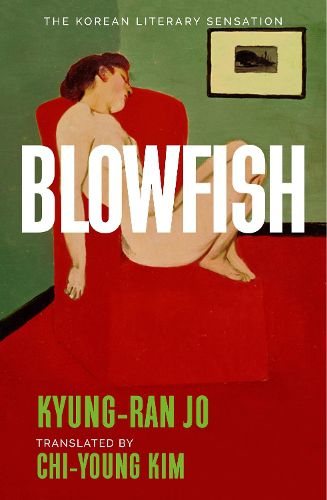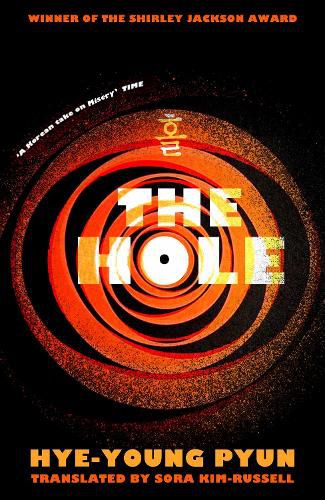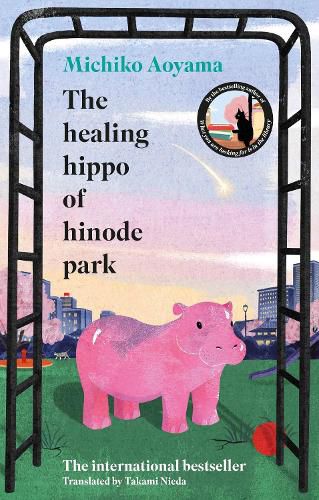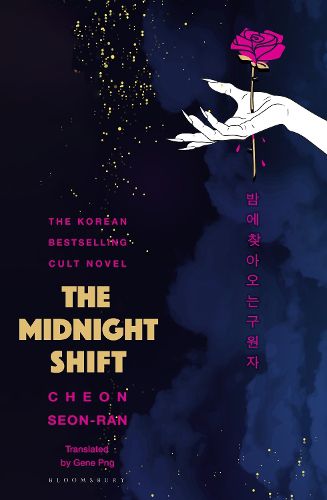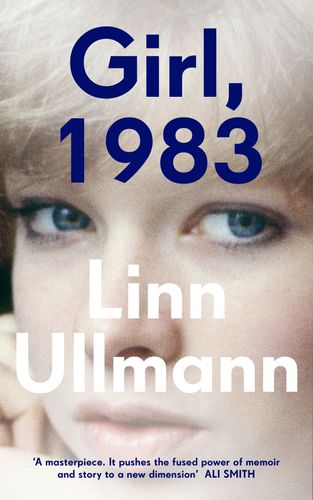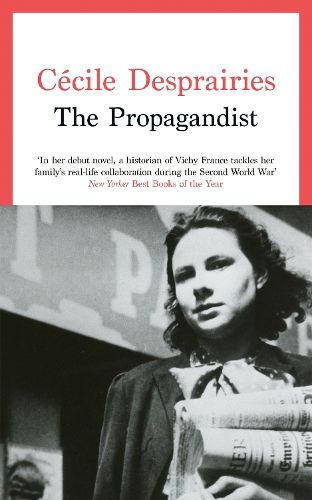This month we're reading fiction translated from: Japanese, Korean, French, Dutch, Spanish and Norwegian.
August is also Women in Translation Month, so we're happy to share lots of new releases from some of today's best international authors.
Hakuda Photo Studio
Her Tae Yeon, translated from Korean by Shanna Tan
Jebi is tired of noisy, crowded Seoul and her dull job at a photography studio in the city. When she sees a billboard on her commute showing beautiful Jeju Island, she decides to quit her job and spend a summer there. On the last day of her trip, when she's due to fly back to her real life, she loses everything: phone, credit cards, plane ticket. Wandering through a fishing village, she stumbles across a tiny photo studio.
Staying to work there, she meets and photographs a young couple who are about to get married, an elderly ex-cop haunted by questions from his past, and the Jeju haenyeos, a group of local women freedivers who gather sea urchins. The photos Jebi takes capture the magic of the island and its people.
Blowfish
Kyung-Ran Jo, translated from Korean by Chi-Young Kim
A sculptor and architect cross paths once in Seoul, and they meet again in Tokyo. The sculptor has decided she is going to die. She is learning to prepare a fatal serving of blowfish. This was how her grandmother killed herself, in front of her husband and child. Delicate, artful but with a sense of guaranteed finality. The architect's life has been marred by death. His elder brother leapt to his death from the fifth floor of an apartment building. He too is pondering his own exit from this life.
For the woman, the man is a pitstop on the road to her own suicide. For the man, the woman is a way to forestall his death and offer him an exit. Through the impressions they leave on each other, they reflect on their own lives.
People with No Charisma
Jente Posthuma, translated from Dutch by Sarah Timmer Harvey
An unnamed narrator grows up overshadowed by her unconventional mother, an ex-Jehovah's witness and former television star with an inferiority complex. Her father is the head of a psychiatric institution, whose only form of parenting is to offer his daughter the same life advice he dispenses to his patients. Reserved and somewhat aloof, he chooses not to intervene when his wife obsesses about charisma, calorie counting, and turning their daughter into a child prodigy.
Their daughter strives to meet her mother's expectations and bond with her father while secretly worrying she lacks the drive or charisma to do anything significant with her life. When her mother is diagnosed with terminal cancer, she begins to address their generational trauma, forge a new relationship with her father, and discover life on her terms.
In twelve chapters – each reflecting a different phase of life – Posthuma expertly dissects a fraught family history, exposing the absurdity that often lies at the heart of life's most poignant and challenging moments.
Read our staff review here.
The Hole
Hye-young Pyun, translated from Korean by Sora Kim-Russell
Oghi wakes in a hospital bed unable to speak or move. The car accident that killed his wife has left him trapped in his own body and under the control of his mother-in-law, as she grieves the loss of her only child.
Isolated from his friends and neglected by his nurse, Oghi's world shrinks to the room he lies in and his memories of his wife, a sensitive woman who found solace in cultivating her garden.
But as Oghi remains alone and paralysed, his mother-in-law is hard at work in the now-abandoned garden, uprooting what her daughter had worked so hard to plant and obsessively digging larger and larger holes …
The Place of Shells
Mai Ishizawa, translated from Japanese by Polly Barton
In the summer of 2020, as Germany slowly emerges from lockdown, a young Japanese woman studying in Gottingen waits at the train station to meet an old friend. Nomiya died a decade earlier in the Tohoku tsunami, but he has suddenly returned without any explanation.
The reunited friends share a past that's a world away from the tranquillity of Gottingen. Yet Nomiya's spectral presence destabilises something in the city: mysterious guests appear, eerie discoveries are made in the forest and, as the past becomes increasingly vivid, the threads of time threaten to unravel.
The Healing Hippo of Hinode Park
Michiko Aoyama, translated from Japanese by Takami Nieda
'Kabahiko is an amazing hippo. People say that if you touch the area of his body that you want to make better on yours, he'll provide a cure'
Nestling at the bottom of a five-storey apartment block is the children's playground, Hinode Park. If you look to the side, standing on stubby legs, is a hippo. Its upturned eyes give it a teary look, yet for decades, its quiet power has sustained the hearts of one community.
Meet the neighbours who will reach out to kabahiko: Kanato presses his head to the hippo's cheek, hoping to recover the stellar marks he once scored; Sawa, a lonely new mother, strokes its mouth, hopes to connect as she once did when she was an award-winning retail assistant; Chiharu, a wedding-planner, hopes to be able to listen for the happiness of others; Yuya avoids sports day with a fake injury, only to find he really is in pain; despite Kazuhiko's fading eyes from too much editorial work, he will learn to see life's everyday wonders.
Due for publication 12 August.
Read our staff review here.
The Midnight Shift
Cheon Seon-Ran, translated from Korean by Gene Png
When four isolated elderly people die back-to-back at the same hospital by jumping out of the sixth-floor window, Su-Yeon doesn't understand why she's the only one at her precinct that seems to care. But her colleagues at the police force dismiss the case as a series of unfortunate suicides due to the patients' loneliness. But Su-Yeon doesn't have the privilege of looking away – her dearest friend, Grandma Eun-Shim, lives on the sixth floor, and Su-Yeon is terrified that something will happen to her next.
As Su-Yeon begins her investigation alone, she runs into a mysterious woman named Violette at the crime scene. Violette claims to be a vampire hunter, searching for her ex-lover, Lily, and is insistent that a vampire is behind the mysterious deaths. Su-Yeon is skeptical at first, but when a fifth victim jumps from the window, her investigation reveals the body was completely drained of blood. Desperate to discover the cause of the deaths, Su-Yeon considers Violette's explanation that something supernatural is involved …
Due for publication 12 August.
Girl, 1983
Linn Ullmann, translated from Norwegian by Martin Aitken
Paris, a winter's night in 1983. She is sixteen years old, lost in unfamiliar streets. On a scrap of paper in her pocket is the address of a photographer, K, thirty years her senior. Almost four decades later, as her life and the world around her begins to unravel, the grown woman seeks to comprehend the young girl of before.
Set in Oslo, New York and Paris, Girl, 1983 is a genre-defying and bravura quest through layers of memory and oblivion. As in her landmark previous work, Unquiet, Linn Ullmann continues to probe the elegiac sway of memory as she looks for ways to disclose a long-guarded secret. A delineation of time and place over the course of a life, this remarkable novel insistently crisscrosses the path of a wayward sixteen-year-old girl lost in Paris.
Due for publication 12 August.
Discontent
Beatriz Serrano, translated from Spanish by Mara Faye Lethem
On the surface, Marisa's life looks enviable. She lives in a nice apartment in the heart of Madrid, her friendly neighbour and lover Pablo lives downstairs, and she's risen quickly through the ranks at a successful advertising agency.
And yet Marisa hates her job and everything about it. Over one hot summer, she spends her working hours locked in her office, bingeing on YouTube videos and getting high on tranquilizers, wondering if everyone cries when their alarm goes off in the morning. When she can, she escapes to the air-conditioned basement of the Prado Museum.
But Marisa's facade of success is in danger of being exposed as she's forced to deliver a talk on creativity at her company's horrendous annual team-building retreat. Surrounded by psychopathic bosses, annoyingly overzealous colleagues, flirty facilitators, and an excess of drugs, Marisa is pushed to the brink of a complete spiral.
Due for publication 26 August.
The Propagandist
Cécile Desprairies, translated from French by Natasha Lehrer
In a grand Paris apartment, a young girl attends gatherings regularly organised by her mother. They talk about clothes and exchange the day's gossip, but the mood grows dark when they start to talk about her past, and the great love she is said to have known during the Second World War.
When the girl grows up, she looks into the enigmatic figures in and around her family. Who was the man her mother fell in love with before the war? Why did they zealously collaborate with the Nazi occupiers of France? And why did they remain for decades afterwards obsessive devotees of that lost cause?
Due for publication 2 September.



